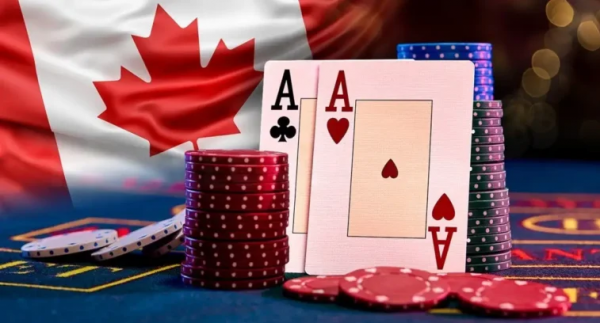There are many things that you have to learn when starting out in poker, so it is very important to know where you should be concentrating your attention at first. For that reason, I’ve compiled a list of 12 of the most important tips for poker beginners.

If you are just starting out, just follow these simple steps and you’ll be good to go.
1. Learn the rules, positions and poker hand rankings
Without understanding poker’s general rules, hand rankings, and table positions, you just can’t do much in this game. So, before jumping into a game of your choice, spend some time going over all of this until you’ve got all the knowledge down firmly.
Putting the time in to learn these concepts isn’t “sexy”, but you’ll inevitably be glad you did and it will likely save you quite a few bucks along the way.
Understanding rules and hand ranking is pretty straightforward, but many players tend to underestimate the importance of learning about table position. Understanding the importance of position is invaluable and you need to make sure that you understand this concept before starting your game. As a matter of fact, I would say it is one of the most important concepts in poker and realizing its full potential will take you quite far.
You can play more hands in later positions, even with weaker holdings, since there are fewer players left to act. Thus, you’d be increasing your likelihood of taking down the pot uncontested.
Moreover, when you have a position on your opponent, it means you act after him and are able to see what he does before making your decision. This way you already have some information that can help you with your decision making.
Especially if you’re just starting out in poker, try to play many more hands when you have good position. This will save you a lot of trouble post-flop.
2. Start playing for low stakes
This is where some beginning poker players really struggle at first. Your goal should be to learn poker strategy and the game, not to win money from the first day you start playing. If you will be able to concentrate on learning instead of the money, you will be able to reach your goals and actually start playing for reasonable stakes much more quickly.
There are quite a few benefits for starting out at lower stakes, just to name the few:
- You will feel more comfortable not risking much money. Thus, you’re more likely to try new moves and different strategies knowing that it will not hurt you so badly financially. This enables you to play with peace of mind, thus letting you learn more quickly and efficiently.
- You will encounter much weaker competition. This increases the likelihood of your money lasting longer at the outset, rather than it being gobbled up by better players.
- You’re just getting used to beginner concepts like hand rankings and positions, which can be done when playing at any stakes. So, why play higher than necessary?
Before moving to higher stakes, you need to learn basic poker strategy and master the fundamentals. Again, low stakes are perfectly fine for this and you shouldn’t move up to the next level until you feel comfortable with you game and are ready to play with tougher competition.
3. Play tight but aggressive
Try not to force action by playing any two cards that you get. This is something that many players will be doing in lower-stakes games. You should actually do quite the opposite, start out by playing just the strongest hands.
You will likely have an advantage of holding much better hands pre-flop, so use it well and try to raise and bet aggressively, instead of simply limping or calling.
4. Use position to your advantage
We already touched this a bit and talked that you should be playing more hands when you have position post-flop, but what about pre-flop? Position is hugely important here as well. It will be one on the most important factors to take into consideration when deciding which hands to play and which ones to fold. Quite simply, you usually just win more money when playing from later positions, so try to play more hands when in such a spot.
Here is an illustration of position at a 6-max table:

You should play very tight from EP (early position) and raise just the strongest hands, open few more hands from MP (middle position), then start opening many reasonable hands from CO (cutoff) and play many hands when on the BTN (button; dealer position).
BTN is by far the most profitable position in poker, so you should opt to play a lot there. No matter how the hand goes, if your opponents in the blinds just call or 3-bet and you decide to call, you will always have a position on them post-flop. If you’ve internalized the importance of previous tips from this article, you surely understand that this is a huge deal.
5. Play at only one table at a time
This tip of course only refers to online poker. With limitless action available quite literally at your fingertips, you will be tempted to open and play at more tables, but you need to resist that temptation.
As a poker beginner, your goal is to learn, not to grind. Leave multitabling for a later stage of your development as a player. Only once you master more advanced strategy concepts should you consider playing more tables simultaneously.
Right now, you should be concentrating on your opponents and yourself – notice the hands they play when you get to see a showdown, take notes on any mistakes they are making and how you can use these to your advantage.
Properly being able to focus on these things makes it imperative that you only play at one table at a time.
6. Only play when you feel good
People do crazy things then we they’re tired, angry, or simply unable to concentrate. You need to learn how to deal with those situations as a poker beginner.
For example, you’ll probably feel frustrated after losing a big pot, or when someone cracks your AA with 9-4 offsuit. It’s important not to let emotions dictate the decisions you make at the poker tables. Anytime you’re feeling anything other than “good”, you ought to take a short break from playing until you feel better again.
Emotions are your enemy at the poker table, so don’t make things worse by starting to play when you already feel bad or angry. I cannot stress enough how important it is – you should never start playing when you feel bad!
(Ed. Note: For more tips on strengthening your mental game of poker, check out our interview with Jared Tendler, who literally wrote the book on it.)
7. Learn poker odds
Online poker is a numbers game, so it pays to know poker odds and make decisions based on precise calculations, not your emotions. When you know what odds you have to hit a winning hand and what pot odds you are getting when considering a the call, it is far easier to make the right decisions.
The topic of poker odds is quite complex – numerous books have been written about it. At the very minimum, however, you need to have some willingness to dedicate time to learning poker odds. Without understanding the math part of poker, you will struggle to move up from the beginner’s stage.
8. Think about your opponents’ cards
Knowing your hand is not enough to make a good decision; you also have to put your opponent on a range of cards he could have. This goes hand in hand with understanding poker odds. Specifically, knowing how likely you are to improve your hand also gives you some additional information about your opponents’ hands. This information helps you make better-educated decisions and eliminates guesswork.
Truthfully, this is one of the hardest poker concepts to master, but one that you cannot avoid if you want to become a winner. Here are a few helpful questions to ask yourself when trying to figure out what your opponents’ cards are:
- What is his position?
- What hands he could be playing from that position?
- What is his pre-flop and post-flop playing style, aggressive or passive?
- Is that board likely to help or hurt his pre-flop range?
- How has he acted before in similar spots?
- How long does he take to make a decision?
You need to put in a lot of work until you will be able to assign your opponent accurate range of hands. Do not be too hard on yourself if you struggle a bit in the beginning; it’s perfectly normal. As with most things in poker, the more you practice, the better you’ll get.
9. Take your time
Taking some time to make a decision is almost always a good idea. Do not fall into a habit of making decisions automatically; it leads to bad results and stops you from being able to learn properly.
Even if you will be doing many things right, not taking your time could kill all your potential winnings. Therefore, it literally “pays” to take time when making important decisions at the poker table.
(Note that this fits well into tip #5 of just playing one table at a time.)
10. Don’t bluff too much
“You play when you have a hand and you fold when you don’t.”
This is one of the best pieces of advice you can get as a poker beginner. Of course, this changes as you learn more advanced strategies and become a more experienced player, moving up in stakes. For that matter, you’ll be exposed to topics like bluff catching, understanding when to bluff, and much more.
However, at the beginning, this simple strategy of not bluffing too much will help you build good poker fundamentals and learn the game without spewing money.
11. Learn to fold
Kenny Rogers perhaps sang it best in “The Gambler”: you gotta know when to fold ’em.
Stop for a second and think about it. What does it mean when your opponent, who was passive for the last hour and was just calling your bets, raises on the river “out of nowhere”? Could it be a bluff? Unlikely! Therefore, you need to learn to be able to let go of hands that would otherwise be quite strong in spots like those.
It could look awkward to fold so good hands at first, but believe me; you’ll be doing yourself a big favor and will likely save quite a bit of money making “big folds” in the long run.
Of course, this tip shouldn’t be taken too far. Aggressive players notice if you fold too much and take advantage of that.
This is part of the beauty of poker; you need to distinguish different players and adopt different strategies against them. However, versus passive ones – learn to fold when they make a move!
12. Use helpful software
Lastly, even when playing for low stakes online, you just have to use tracking software in order to compete. Almost everyone uses it. If you don’t you’ll be missing a ton of value and information on your opponents.
I am not talking about complex apps, that helps to solve GTO (game theory optimal) spots and other advanced stuff. Start out with a simple software like Hold’em Manager or Poker Tracker and use it to your advantage. Programs like these let you quickly spot different types of opponents and allow you to adapt you strategy accordingly. Moreover, both programs have free trials so there’s nothing to lose.
If you’re looking for more information on helpful poker software, I encourage you to check out my list of The Best Poker Tools.
Conclusion
Nobody can snap their fingers and be an expert poker player in an instant. Getting good at the game takes time and patience. Follow the 12 tips we’ve listed and you’ll be on your way to poker success.
Once you feel like you’ve mastered these fundamentals and are ready to take your game to the next level I recommend taking a Poker Strategy Video Course. It’s almost as valuable as personal poker coaching but it costs just a fraction of the price and covers the most important areas in which you can improve your game. I’ve also got tons more tips and strategy articles on my Poker Coaching site. which you are welcome to visit anytime.







Awesome post. Been playing for a looooong time but never really “learned” how to play. I’m starting from the beginning and relearning how to play. This is a great list to start with. Thanks!
Thanks for the great feedback 🙂
Nice to hear that you like it 🙂 Starting and learning everything on your own could be quite tough. Make sure to spend some time learning and analyzing your game, hit some forums and if you have any questions feel free to contact. Cheers!